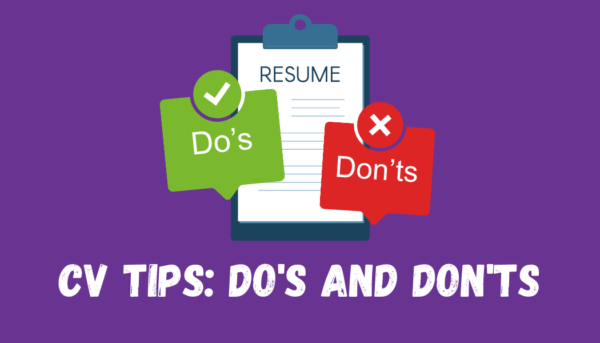
So, you’ve landed your first office job – how exciting!
However, it’s so new to you and you don’t know the first thing about working in a office. Not to worry, here’s what you need to know to survive your first day…
1. Check the weather
Check the predicted forecast for the next day so you can pick out your outfit accordingly.
2. Check transport routes/updates
If you’re travelling by public transport make sure you know your bus times and the stop you need to get on / get off at.
If you’re driving to the office, check the latest traffic report incase there are any roadworks happening on your route.
You should aim to arrive at least 10 minutes before your working day is due to start.
3. Prepare your outfit
Office wear is usually formal and professional, however there can be various levels of formality depending on the dress code of the company.
The best thing to do would be to go with an outfit similar to one you interviewed in, then you can gauge on the day what the standard dress code is in the workplace.
The majority of women within an office will opt for a dress and black tights, a blouse and smart trousers or a blouse and a pencil/mid length skirt. For men, they will usually wear a shirt with smart trousers and shoes (depending on the dress code you may also pair these with a blazer and/or a tie).
The main do’s and don’ts are:
Do
- Wear freshly cleaned and ironed clothes
- Be presentable (no holes in clothes, loose threads, scuffs on your shoes, half painted fingernails etc.)
- Keep your colours neutral (safe colours would be black, navy, white, cream, light blue, grey or brown)
Don’t
- Wear anything you’re not comfortable in as this will affect how confident you’re feeling throughout the day
- Wear anything too revealing or daring – you want to make the right impression

4. Prepare your bag with these desk essentials
For your first day is it best to take the essentials with you just incase they aren’t supplied by the company, you will need:
- A notepad to take notes
- Pens to write down your notes on the first day (make sure to check that your pens work and take multiple pens just in case one does stop working)
- A diary to jot down and important dates that are mentioned that you need to remember
- A desk calendar – a great way to highlight upcoming meetings, events etc. by highlighting them on your desk calendar so it’s right in front of you
- A mug for your teas/coffees – you’ll find most people in the office have their own preferred mug for hot drinks
5. Prepare your lunch
For your first day we would recommend taking a pre packed lunch with you, especially if you’re not familiar with the surrounding areas of the office and aren’t sure what local amenities are available. This way you are guaranteed to have something to eat at lunch and you can go exploring the local area on your dinner break.
We would also recommend taking a bottle of water with you, a lot of people get nervous on their first day and a bottle of water will help you to be prepared in case you get a dry mouth or need to take a drink. On your first day you can familiar yourself with the kitchen facilities so you can top up your water if needed, find the office glassware etc.
6. Set an alarm
Before going to bed remember to set an alarm for the morning! It can be easy to get nervous and restless the night before but try to get a good night’s sleep so you wake up feeling refreshed and ready to face the day.

1. Introduce yourself and smile!
Remember to introduce yourself to people you come into contact with on your first day, this will also help to break the ice and make you feel more comfortable. When talking or approaching people, smile at them. Smiling and looking happy to be there will automatically give people a good first impression about you and you will look more approachable. If someone starts in the office who looks unapproachable, most likely people are going to leave them alone and they’ll find it much harder to build new relationships with their colleagues.
2. Learn your coworkers names
It’s completely normal to not remember everyone’s name on your first day, but you want to make a conscious effort to get to know people name’s within the first couple of days. If you’re a week into your job and still forgetting who’s who, people are going to think you’re disinterested and not paying attention. Here’s a few tips to help you remember…
Focus on the conversation
When a person is introducing themselves to you, pay attention to what they are saying. Our minds can quite easily drift off or we can start having a conversation with ourselves and before you know it, you haven’t listened to anything the person has said.
Repeat their name
At the end of the conversation repeat the person’s name to get it in your mind again. You could do this by finishing the conversation with “It was lovely to meet you Claire” for example.
Make a note and memorise
You could make a quick note in your notepad of people’s names you have met or put together a quick floor plan and note where each person is sat. You could also memorise this at the end of the day/in a morning to make yourself familiar with the rest of your office.
3. Don’t fear answering phones
Most of us gain a moment of anxiety when we have to make a call to or pick up a call from someone we don’t know. Why do we fear the phone?
For someone who is completely new to dealing with phone enquiries, this can be pretty daunting.
But, before you start getting overwhelmed by it, bear in mind is that you’re probably not in a situation to help the person at the end of the phone on your first day!
The company should provide phone training on your first day, however if you’re still not feeling confident, listen in to the phone conversations your colleagues are having in the office – How are they introducing themselves? How are they closing a call? How are they referring a call to someone else? Jot down the regular phrases you’re hearing and use this as a guide.
The standard greeting of an external call (a call from outside of the company) consists of “Good morning/afternoon, *company name*, *your name* speaking”.
If you are in a situation where you can’t help the person on the other side of the phone, you can either respond with the following:
- “Could you please hold for a moment whilst I look look into your query”
- “‘OK, I wouldn’t be able to help you with that issue/query, and the relevant person is on another line. Can I take a message?”
In either circumstance, you should obtain the following details:
- The caller’s name and contact details
- The company they are calling from (if relevant)
- What the phone call was regarding
This means if you are transferring the call to a colleague, you could say “There is a Jane from Essential Recruitment on the line, calling about the staff you requested”.
If you’re taking a message because the relevant person is busy on another line, then you would take the caller’s contact details alongside the message, to give a well informed note to your colleague.
4. Take plenty of notes
Your notepad will become your best friend if you use it wisely. There will be lots of different training involved in your first week and lots of information to take in too! Quite often, too much information for us to process all at once. Your employer may provide you with resources to refer back to, however we would highly recommend jotting down important information that you will need daily. For example, you’ve been shown how to input data into a spreadsheet, write down every step of the process. This way, when you come back to do it the next day and can’t remember one of the steps, you can refer back to your notes.
5. Take note of the workplace culture
In your first few days, it is also beneficial to observe the behaviours of the workplace, to help you understand the workplace culture better. By observing and joining in with the behaviours in the office it will help to ease you in to a new environment and start to build relationships with your colleagues.
Things to take notice of include:
- Are you colleagues chatty? What do they talk about?
- Do they make many jokes? What is acceptable and what isn’t?
- How do they dress?
Good luck, we’re sure you’ll smash your first day! Remember you’re not expected to know everything when you start a new job, just enjoy yourself and the rest will follow.

Read more tips on our blog…
Would you like to register with us? Add your details into this form and we’ll give you a call












